Iran Planning To Test Higher Fuel Prices In Designated Areas
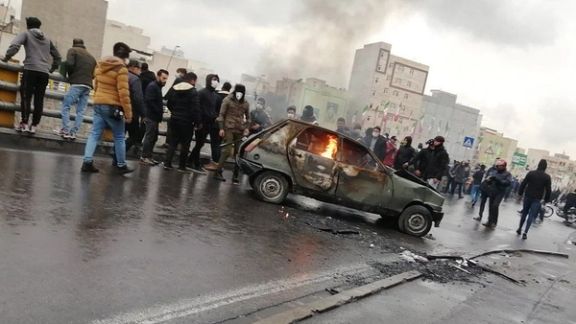
Iran plans to increase gasoline prices in its free economic zones as a test to have better control over the possible consequences of a potentially risky move.

Iran plans to increase gasoline prices in its free economic zones as a test to have better control over the possible consequences of a potentially risky move.
The chairman of the Energy Committee of Iran’s parliament, Fereydoun Abbasi, said on Monday that Kish and Qeshm free economic zones are suitable places to test the plan, to prevent the repeat of the 2019 widespread bloody protests.
In November 2019 a sudden increase in fuel prices led to immediate protests that turned into anti-regime unrest, with security forces killing hundreds of people.
Abbasi, who is the former head of Iran’s nuclear agency, added that for any energy policy to work, it must be tested in a smaller scale, and should be thoroughly examined, considering the realities of peoples’ lives, before scaling up to the national level.
“We need to compare people's incomes with their expenses. People in our society should not be malnourished,” he said
Struggling economically due to stiff sanctions and meager oil exports, the Islamic Republic cannot continue to provide heavily subsidized fuel and electricity, which are the cheapest in the world in par with Venezuela.
At the same time the government is fearful of mass protests by citizens who have become poorer in the past few years.
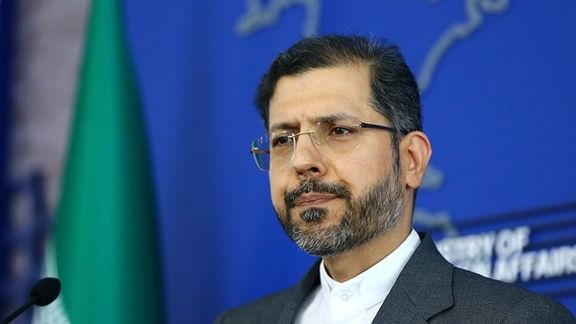
Iran says talks with Saudi Arabia have not produced any results despite a meeting between its foreign minister and his Saudi counterpart in Pakistan on Sunday.
During his weekly briefing with reporters on Monday, Iranian Foreign Ministry Spokesman Saeed Khatibzadeh said that there is no progress or development in the negotiations between Iran and Saudi Arabia.
Khatibzadeh made the comment in reaction to reports about a meeting between Foreign Minister Hossein Amir-Abdollahian and his Saudi counterpart Prince Faisal Bin Farhan Al Saud on the sidelines of the 17th Extraordinary Session of the Organization of Islamic Cooperation Council of Foreign Ministers in Islamabad.
Noting that it was an unofficial and quick meeting, the spokesman said Tehran is still waiting for Riyadh to prove its seriousness to continue the negotiations. “The fifth round of talks between Iran and Saudi Arabia has not been held or scheduled”, he stated.
Khatibzadeh also said Iran calls on the Saudis to stop "interfering in the domestic affairs of other countries", in a possible reference to the conflict in Yemen where the countries have been supporting opposite sides.
Iran and Saudi Arabia have held several rounds of talks since April aimed at mending the relations. The two countries severed diplomatic ties in 2016.
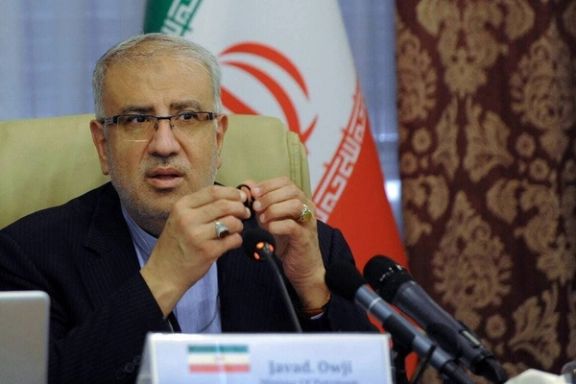
Iran’s oil minister said Monday that output at many oil wells has fallen from 50,000 barrels p/d to 1,000 and local expertise should help restore production.
Speaking at an event dedicated to research at the oil ministry, Owji urged Iranian young scientists to help the oil industry and raise production to much higher capacity, which he insisted is possible for the country. He said only 30 percent of oil reserves are currently accessible and 700 oil wells can benefit from infusion of technology to revive production.
Throughout years of American and international sanctions on finance and technology transfers, Iran’s oil and gas industry is in a bad need for infusion of investments and assistance of large oil companies with the necessary knowhow to maintain production.
In early November Owji said that Iran needs $160 billion of investments to avoid becoming a net importer of oil and gas in the future.
Sanctions and Iran’s inefficient economic system have used up most of Iran’s oil income throughout the 43-year existence of the clerical government in Tehran, leaving its most vital source of wealth in need of serious rejuvenation.
Owji also said natural gas consumption is rising 10-12 percent annually in Iran while production cannot keep. Natural pressure is falling at many extraction sites and Iran needs superior technology to prevent fall in gas production.
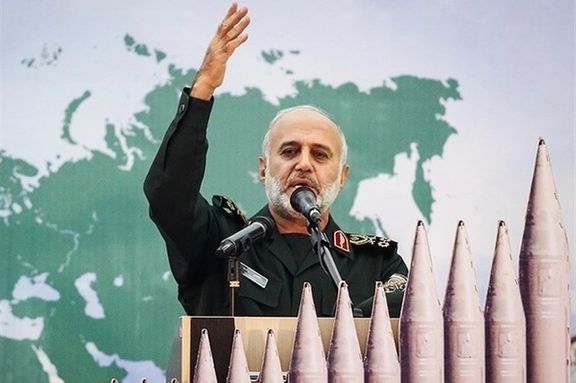
Iran’s Revolutionary Guard launched large-scale air and naval drills in the Persian Gulf on Monday, while pledging a tough repsonse to Israel in case of attack.
Earlier, some media outlets reported that anti-aircraft fire was heard around Iran’s sole nuclear power plant at Bushehr, on the Persian Gulf.
State media later reported that the sounds were related to an air defense exercise as part of the larger drills, while warning Tehran would give a "crushing response" to any Israeli attack.
"This air defense exercise took place at 5 a.m. local time (0130 GMT) with full preparation and coordination with the armed forces," Bushehr's deputy governor Mohammadtaghi Irani told Iranian state media.
Iran has accused Israel of several attacks on facilities linked to its nuclear program and killing its nuclear scientists over the past years. Israel has neither denied nor confirmed the allegations.
Israel has long threatened military action against Iran, and recently reportedly allocated $1.5 billion for an attack if Iran gets dangerously close to obtaining a nuclear weapon.
The escalation comes as world powers have been discussing the revival of the 2015 Iranian nuclear deal limiting Iran’s nuclear program, which Israel has opposed.
Iran has warned of a "crushing" response to any Israeli move against the Islamic Republic.
"If Israel carries out attacks against Iran, our armed forces will immediately attack all centers, bases, routes, and spaces used to carry out the aggression," Iranian commander Gholamali Rashid said, according to Nournews.
The spokesman of the joint drills, codenamed The Great Prophet 17, said on Monday that the five-day military maneuvers will be conducted by IRGC’s ground forces, air force, and navy in cooperation with the cyber electronic wing of the IRGC along the coastal regions of three southern provinces of Hormozgan, Bushehr, and Khuzestan.
General Abbas Nilforoushan added that the maneuver is simulated based on a hybrid warfare model to display the country's military might.
About a fifth of oil that is consumed globally passes through the strategic Strait of Hormuz Strait in the Persian Gulf, where periodic confrontations have taken place between Iran’s military and the US Navy.
Indirect talks between Iran and the United States to reinstate the nuclear pact have made little discernible progress since they resumed last month for the first time since Iran's hardline president, Ebrahim Raisi, was elected in June.
The 2015 deal lifted sanctions against Tehran in return for restrictions on Iran's nuclear activities aimed at extending the time Tehran would need to obtain enough fissile material for a nuclear bomb if it chose to - so-called breakout time - to at least a year from roughly two to three months.
In response to Trump's "maximum pressure" policy, Iran in 2019 started breaching the deal's nuclear restrictions and pressing ahead further with its atomic activities. Iran has enriched more than 200 kilograms of uranium to 20 and 60 percent purity, substantially reducing the time needed to produce a bomb.
Tehran says its nuclear steps are reversible if all sanctions are lifted in a verifiable process.
With reporting by Reuters, Iran media
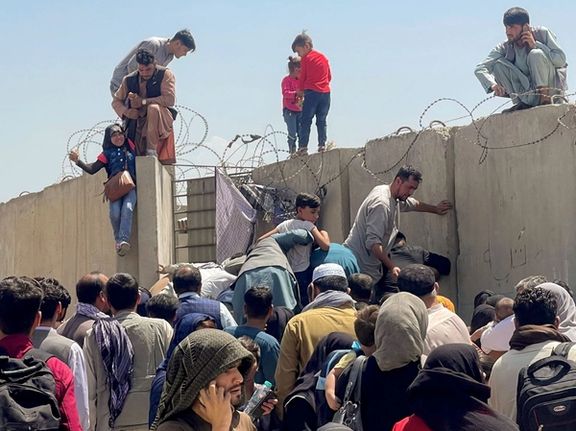
Iran has proposed that Muslim states establish a joint fund to help stabilize Afghanistan and prevent a serious crisis from impacting other regional countries.
Addressing the 17th Extraordinary Session of the OIC Council of Foreign Ministers in Islamabad, Pakistan, on Sunday, Iranian Foreign Minister Hossein Amir-Abdollahian said that the collective interests of the entire region depends on security and stability in Afghanistan.
Contributions by neighboring countries along with their humanitarian assistance are among the most urgent requirements for supporting the Afghan people, he added.
Tehran’s chief diplomat criticized the international community's “indifference” toward the situation of Afghan refugees in Iran, saying that Iran has tried to keep its borders open. Amir-Abdollahian noted, "During the past 40 years, the Islamic Republic of Iran has been hosting millions of Afghan refugees and immigrants" while it “has not received any international aid for this particular purpose so far.”
Despite Amir-Abdollahian’s claim, UNHCR, the UN refugee agency has been aiding Afghan refugees in Iran, including health insurance for 120,000 people. Many governments, such as South Korea, Germany and Italy have also made contributions. Seoul so far has donated $30 million dollars through the United Nations.
Elsewhere during his speech, Amir-Abdollahian also called on foreign banks to release billions of dollars of Afghanistan’s assets that were frozen after Taliban took over the country.
In October the US Treasury announced that it is holding firm on its freeze of Afghan central bank reserves to deny access to the Taliban. Since August, the Taliban have been trying hard to get hold of almost $10 billion worth of assets, which are largely kept in the US.
Iran’s top diplomat stated that sustainable calm in Afghanistan is only possible through an inclusive and effective government in which all ethnic and religious groups would be present. Pointing to Afghanistan’s empty seat in the conference, he also expressed hope that the country will be able to send its representatives to the next OIC summit.
On the sidelines of the conference, Amir-Abdollahian held a meeting with Pakistan’s Prime Minister Imran Khan, in which he stressed the necessity of sending humanitarian aid to Afghanistan as soon as possible.
“The Islamic Republic of Iran supports dispatch of humanitarian aid to Afghanistan regardless of political issues… To this end, while keeping its borders open, the Islamic Republic of Iran is ready to cooperate with all countries to get aid to people of Afghanistan,” he said during the meeting.
Envoys from 57 Muslim nations as well as representatives from the United Nations and international financial institutions, plus the United States, the European Union and Japan attended the two-day summit aimed at relieving the humanitarian crisis in Afghanistan.
Tehran insists that despite an economic crisis due to US sanctions, it has accepted more than 300,000 Afghan refugees following the collapse of the government in Kabul.
However, the International Organization for Migration said in November that Iranian and Pakistani authorities have sent back more than one million Afghan refugees this year, including more than 28,000 people only in the last week of October. “The majority were deported, returning to Afghanistan often broke and broken, in need of health support, food and rest,” said an IOM statement.
The United Nations refugee agency’s appeal to support Afghans fleeing to neighboring countries has called for nearly $300 million to help up to 515,000 people that may flee before the end of the year. About $136 million of the total appeal funding is needed to support Afghans in Iran.
According to the Norwegian Refugee Council, 4,000 to 5,000 Afghans flee across the border to Iran every day. It says some 3.6 million Afghans reside in Iran, although only 780,000 are recognized as refugees. Most other Afghans are considered economic migrants who have been an important workforce in Iran.
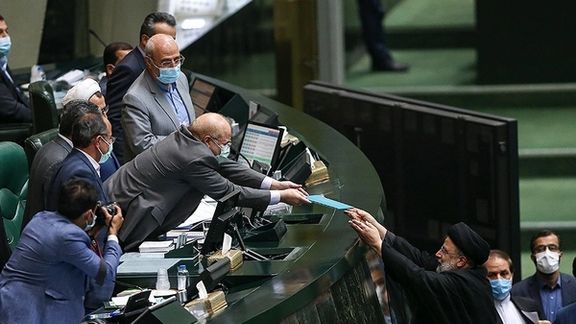
Iran’s government is again planning to take money from the National Development Fund (NDF) to finance its budget next year, as sanctions have cut its revenues.
The government’s plan is to slash in half the amount of money from oil sales which is supposed to be saved in the NDF and spend it on its operations.
According to the charter of the National Development Fund, 40 percent of oil revenues next year should be saved by the government in the fund for investment on productive economic activities that would guarantee the welfare of future generations. NFD is a sovereign wealth fund.
Now, the budget bill presented to parliament on December 12, proposes to save only 20 percent of oil revenues and transfer the other 20 percent to the government.
At the time of its establishment, the fund's share from oil revenues was 20 percent to be increased by 3 percent annually until the end of the Fifth [five-year] Socio-Economic Plan in 2016. The fund's share from oil revenues increased to 30 percent with a 2 percent annual increase during of the Sixth [Five-year] Socio-Economic Plan.
"What has happened in reality, however, is [various] administrations' request to pay less into the fund and to take hold of the rest [of the money destined for the fund] as [US] sanctions grew stronger and oil revenues fell," the Iranian Students News Agency (ISNA) wrote Sunday.
Another problem with this scheme is that Iran might not be able to repatriate all the oil revenues because of US banking sanctions, which means the NDF money the government wants to spend will not enter the country as hard currency. Economists say that in such a case, borrowing from the fund would mean printing Iranian rials and spending it in the country, further fuelling inflation, which now stands at the annual rate of 45 percent.
Since its establishment in 2000 as a currency reserve fund, all administrations have borrowed from the fund for various purposes, including 2 billion euros in 2019 to increase the military's budget. The administration of President Mahmoud Ahmadinejad borrowed heavily from the fundwhich had been handed over to him with over $24b, including $2.7b to pay New Year cash handouts to all Iranians in 2013.
In 2008 the government of President Ahmadinejad classified information about the fund. In 2013, the newly elected President Hassan Rouhani said the fund had completely been drained by his predecessor's government. There is currently no concrete information on the fund's assets, but it is clear billion were withdrawn since 2018 when the United States abandoned the 2015 nuclear agreement and imposed sanctions.
The amount that the Raisi administration intends to borrow, half of the fund's share, will be the largest percentage ever drawn from the fund.
Withdrawing, or borrowing, from the fund requires the approval of Supreme Leader Ali Khamenei.
In 2020, Khamenei did not approve the Rouhani administration's request to slash NDF’s share from oil revenues and add it to its budget revenues.